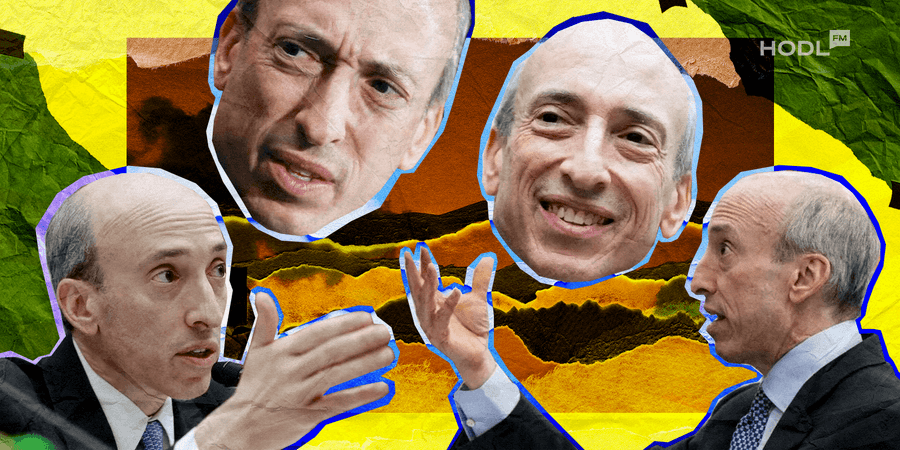Coinbase has asked a federal court to sanction the U.S. Securities and Exchange Commission (SEC) after the agency’s Office of Inspector General (OIG) confirmed the deletion of nearly a year of text messages sent by former Chair Gary Gensler during one of the most tumultuous periods in crypto regulation.
In a filing Thursday with the U.S. District Court for the District of Columbia, Coinbase alleged the SEC had “destroyed documents [it] was required to preserve and produce,” and asked for expedited discovery, sanctions, and the immediate production of all responsive materials.
OIG: Gensler’s texts permanently deleted
The OIG’s Sept. 3 report revealed that all of Gensler’s smartphone messages between October 2022 and September 2023 were erased in a factory reset conducted under a new IT policy. The watchdog said the data “could have been preserved,” but SEC systems staff wiped the device after classifying it as disconnected from the agency’s network for more than 45 days.
That period covers the collapse of FTX, heightened enforcement actions against exchanges, including Coinbase, and ongoing Freedom of Information Act (FOIA) litigation.
“The Gensler SEC destroyed documents they were required to preserve and produce. We now have proof from the SEC’s own Inspector General,” Coinbase Chief Legal Officer Paul Grewal said on X Thursday.
The Gensler SEC destroyed documents they were required to preserve and produce. We now have proof from the SEC’s own Inspector General. Today we ask the federal court to address this gross violation of public trust to ensure that it never happens again. 1/3 pic.twitter.com/DPLtHUiolj
— paulgrewal.eth (@iampaulgrewal) September 11, 2025
Coinbase argued the lost texts likely contained key insights into the SEC’s decision‑making process around digital asset enforcement, adding that the deletion caused “irreparable harm” to FOIA requests already in litigation.
Coinbase cites FOIA and record‑keeping violations
In its filing, Coinbase emphasized that the agency’s failure to preserve communications undermines FOIA compliance. The company noted it had requested “all communications” on crypto enforcement years ago, but those records are now permanently lost.
The OIG also flagged that potential data loss extended beyond Gensler. Devices from more than 40 senior SEC officials were at risk, with confirmed or suspected deletions from 21 of them.
Experts call it a record‑keeping credibility crisis
The controversy has already attracted comment from compliance specialists. Rishabh Gupta, Director at Web3 platform Trade Dog Group, said:
“The SEC has fined private firms billions for poor recordkeeping, but now stands accused of doing the very same thing itself. This creates a profound ‘do as I say, not as I do’ problem that severely undermines the SEC’s moral authority.”
This adds to long‑standing criticism that the SEC holds industry to higher standards than it applies internally. By law, the SEC is required to preserve agency records subject to FOIA, with officials typically expected to maintain all communications related to enforcement.
Legal and regulatory implications
Legal analysts note that if the court agrees the SEC violated record‑keeping rules, it could affect enforcement credibility in ongoing cases against crypto exchanges. Courts may also consider sanctions or impose additional compliance obligations on the agency.
“Failure to retain records during critical enforcement windows creates legal exposure for the SEC itself,” said a Washington‑based securities attorney familiar with FOIA litigation, noting that destruction of potential evidence in overlapping enforcement actions could invite further court scrutiny.
Coinbase itself compared the agency’s conduct to its regulatory enforcement:
“The SEC has fined countless private entities for inadequate record preservation. This agency must be held to the same standard,” the filing stated.
What’s next
The federal court will now review Coinbase’s request for expedited discovery and sanctions. The outcome could set an important precedent for U.S. regulators’ obligations to preserve internal records, especially during periods of heightened enforcement and litigation.
The dispute also underscores the political sensitivity of crypto oversight after Gensler’s departure from the SEC earlier this year. Any finding of misconduct could weaken the agency’s position in its wider enforcement push against the digital asset industry.

Disclaimer: All materials on this site are for informational purposes only. None of the material should be interpreted as investment advice. Please note that despite the nature of much of the material created and hosted on this website, HODL FM is not a financial reference resource, and the opinions of authors and other contributors are their own and should not be taken as financial advice. If you require advice. HODL FM strongly recommends contacting a qualified industry professional.





